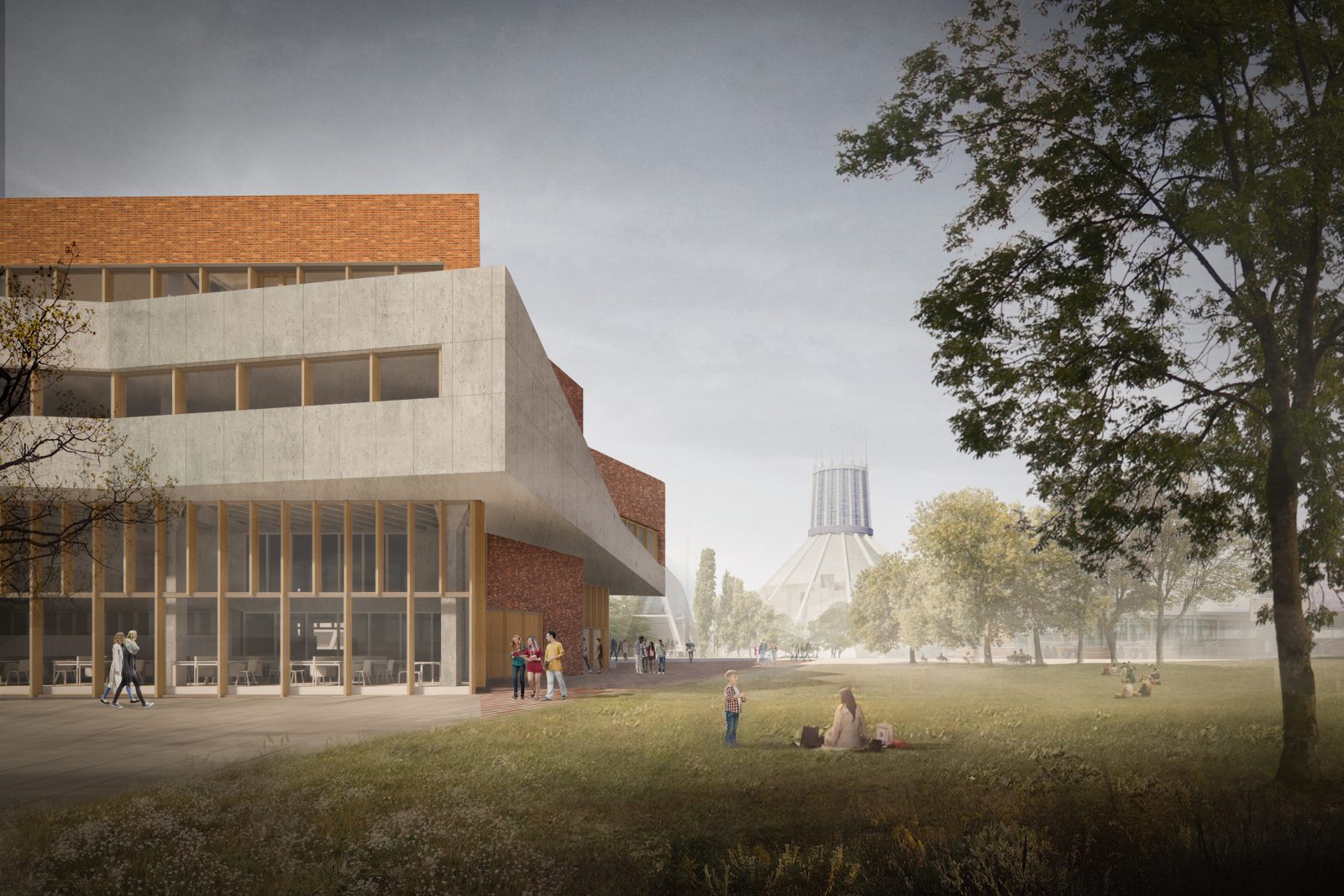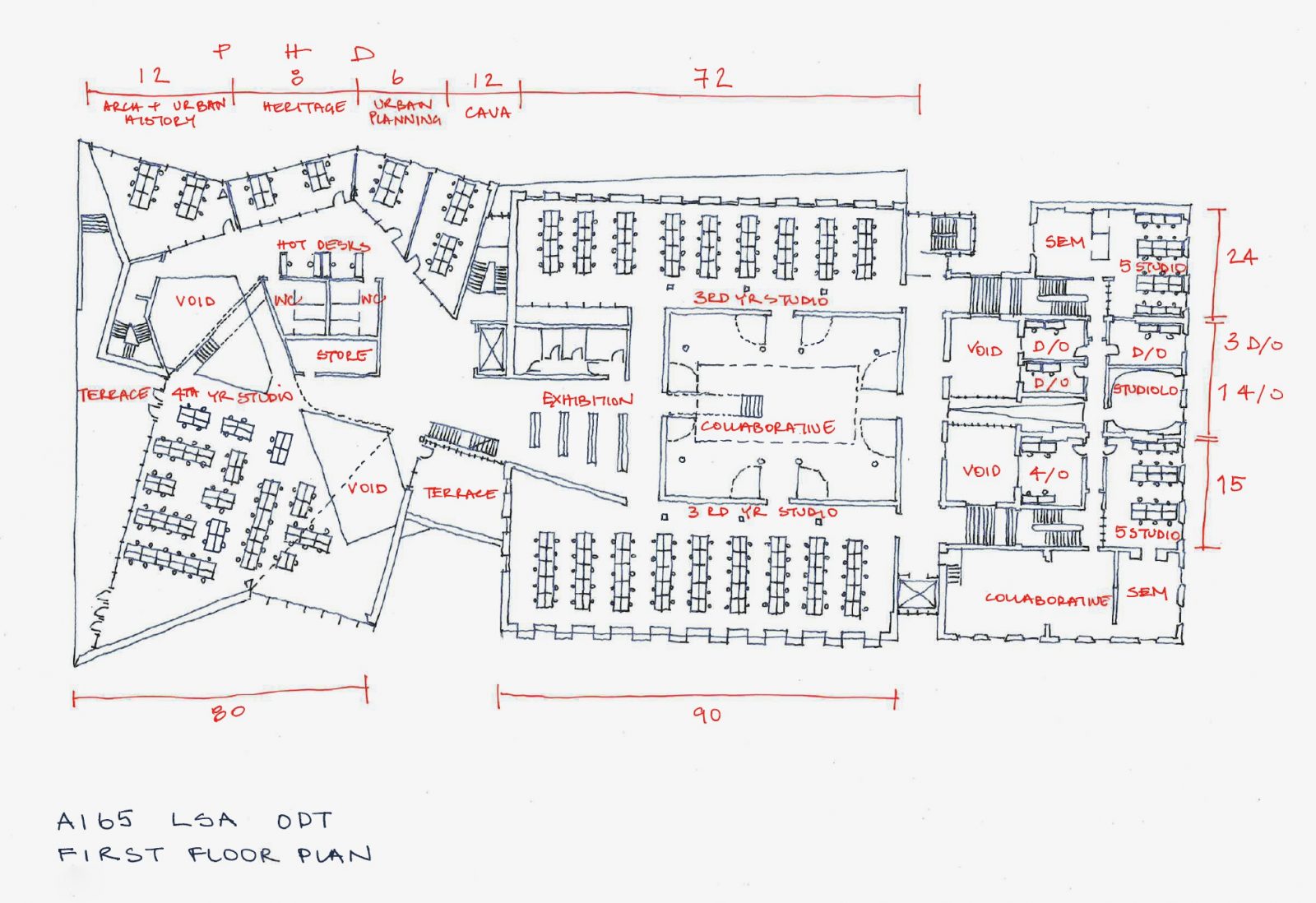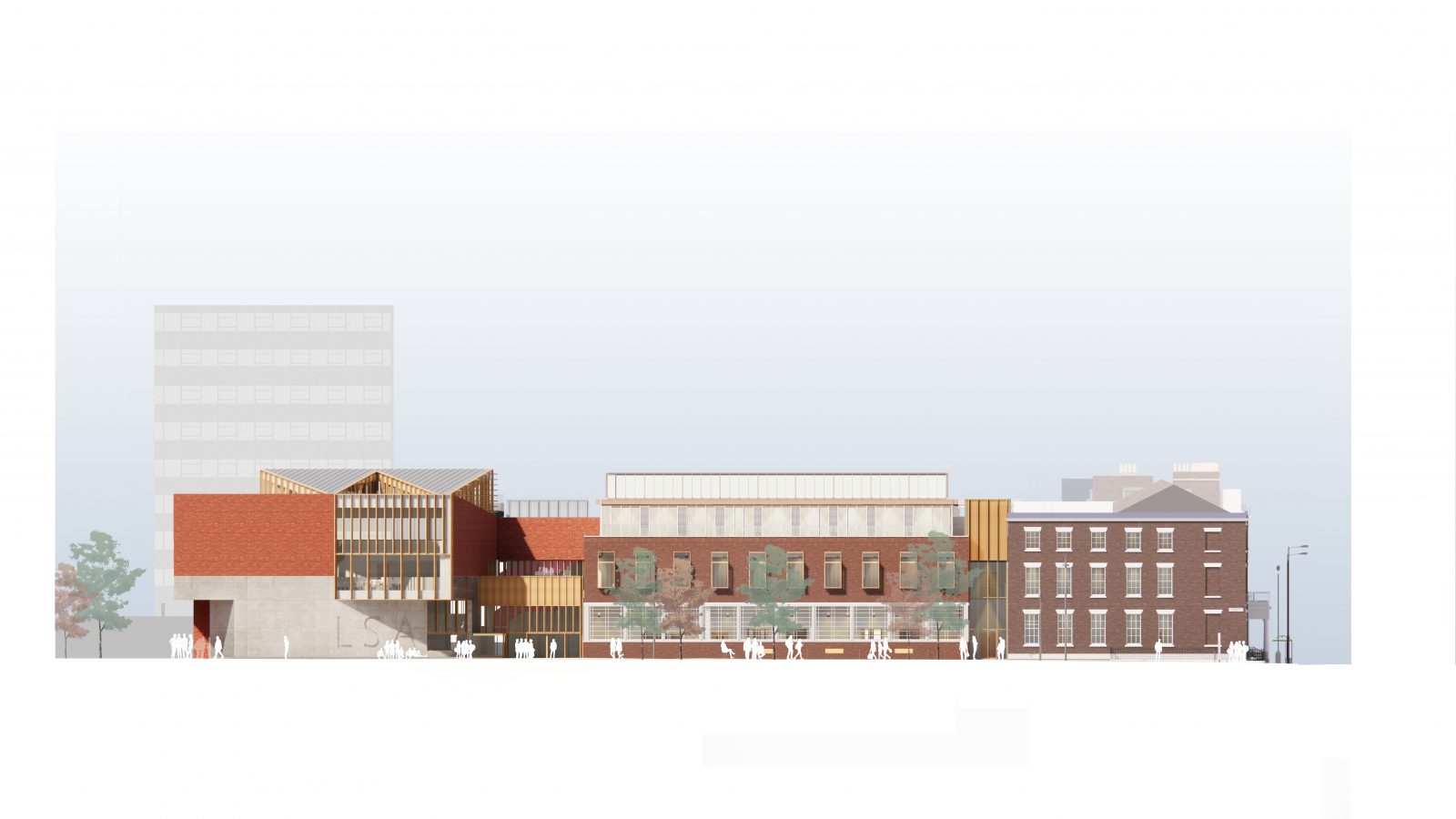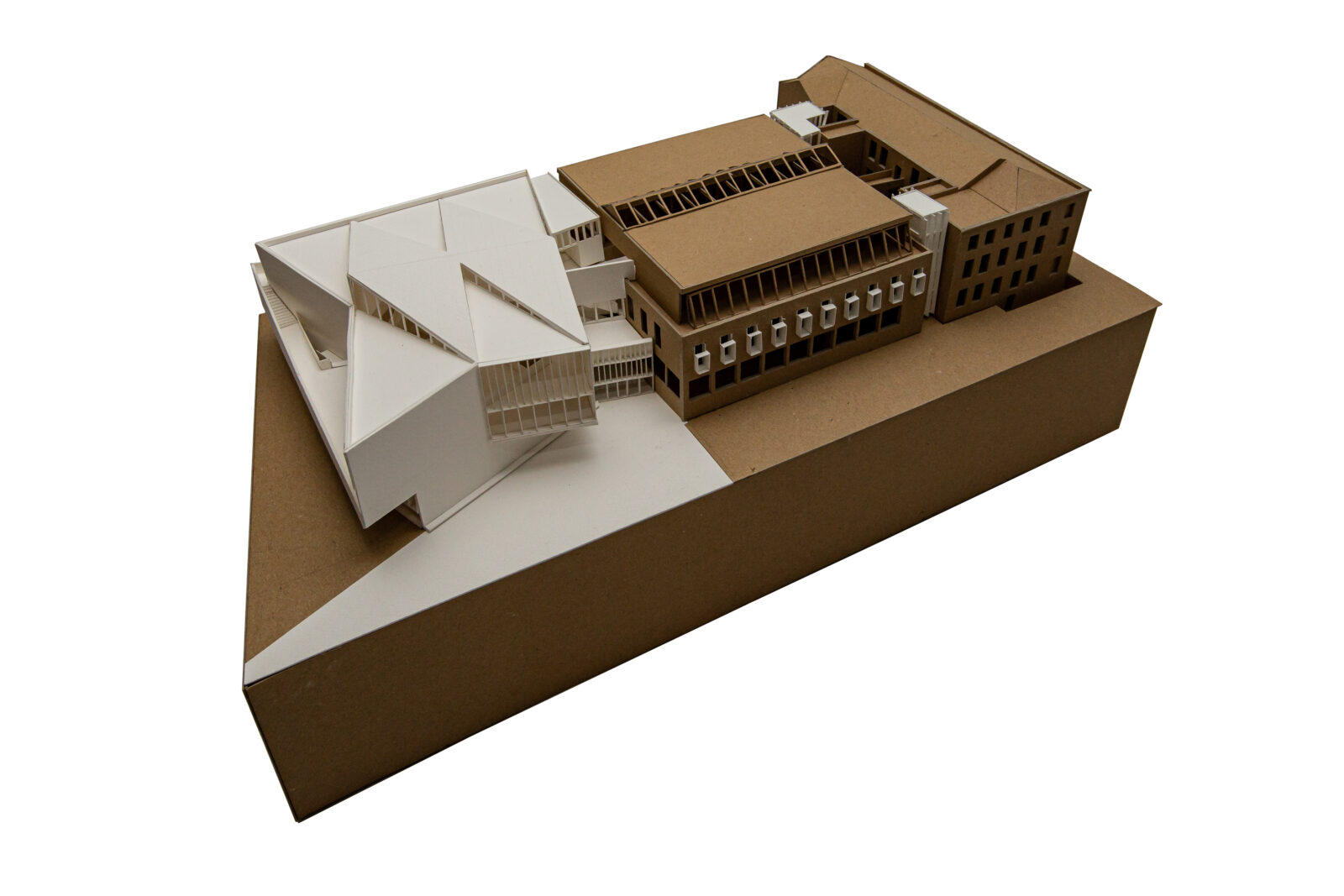In summer 2019 the Dublin-based practice was chosen unanimously for the £23 million scheme ahead of 6a architects, Eric Parry Architects, Carmody Groarke, Haworth Tompkins and fellow Dubliners Grafton Architects.
Unusually, undergraduates, postgraduates, staff from the school and the estates department all took part in a two-stage selection process alongside a high-profile judging panel, which was chaired by architecture critic Kenneth Frampton and featured Tate director Maria Balshaw and architect Michael Wilford.
The proposed building will sit on land currently used as a car park. The design comprises a new-build addition of more than 2,000m², as well as a remodelling of the school’s existing accommodation. This is currently housed in a Georgian terrace and the neighbouring Leverhulme building, which was designed by Charles Reilly in the 1930s and revamped in the 1980s by King and McAllister.
Advertisement
According to O’Donnell + Tuomey co-founder John Tuomey, the practice has been working on a ‘phased implementation of our competition design for a connected school’.
The extension will be the first element to be built followed by the refurbishment of the existing buildings. This first phase will incorporate overlapping studios, exhibition and teaching space, offices and a café.
Tuomey told the AJ: ‘[This initial stage] will provide a new face for the school, opening its activities out to the green space at the heart of the campus community, an integral strategy in the University masterplan.
‘The new architecture building will enhance the civic presence of the school within its wider urban context.’
Marco Iuliano, reader at Liverpool University and the competition director, said: ‘Moving from the competition stage to the design, the University of Liverpool is continuing to show its commitment to renew the architecture on campus with an ethos that aims at the best possible quality.
Advertisement
‘Quality might seem, at first glance, an ephemeral concept, but it is fundamental to create a sense of place and character, showing respect to the history and the culture of a given site.’
He added: ‘In our very uncertain times, in a society dominated by commercial “rules”, this is not at all an obvious approach. And O’Donnell + Tuomey, through their sensitive relationship with site, are generating not only the most thoughtful educational environment, but a broader environment that respects and contributes to the most recent chapter of the first full-time School of Architecture in the UK, active since 1894.’
The university has given approval to progress the design through to RIBA stage 4 before it is reviewed in the autumn. A planning submission is due this year.

Comments
Soumyen Bandyopadhyay, head of Liverpool School of Architecture
From its inception, O’Donnell + Tuomey has worked closely with the primary stakeholders – the academics and students of the Liverpool School of Architecture – to progress the project.
Several conversations have taken place with the core academic team, where the architects have listened carefully and responded to our views and critique. For the School of Architecture, it is enormously exciting to be part of such a design development and decision-making process.
We hope to integrate the live design and building process into the curriculum
Moving forward, we are aiming to further integrate the live design and building process into the curriculum by taking advantage of the opportunity for students to learn about design and practice management, and procurement matters, because the new building will have a transformative effect on the operations and culture of the school.

O'Donnell + Tuomey’s latest design for Liverpool University’s School of Architecture extension – internal view towards the cathedral
Fiona Beveridge, pro vice chancellor, Faculty of Humanities and Social Sciences at University of Liverpool
This project is an important opportunity to consider what architecture education will look like in the future and to create a high quality and vibrant space which supports this vision. The University of Liverpool wants to create bespoke learning and teaching environments which stimulate and drive forward education in a diverse set of disciplines, and also create a sense of belonging for our different cohorts of students.
 The Architects’ Journal Architecture News & Buildings
The Architects’ Journal Architecture News & Buildings
















